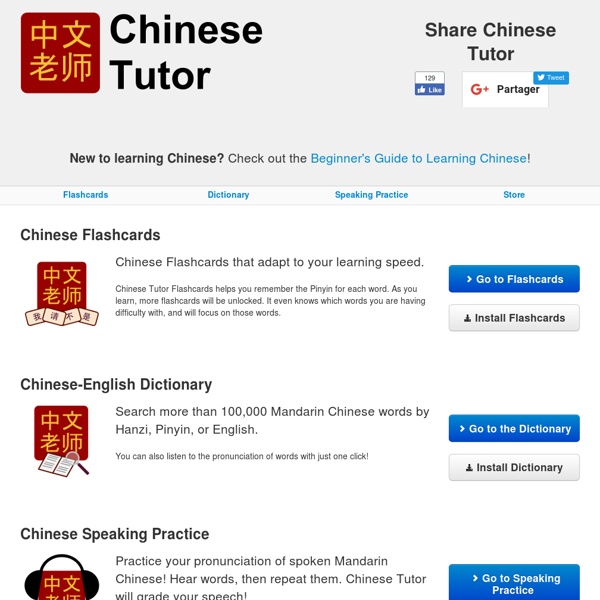



Chinese Grammar Wiki Chinese Word Processor Version 5.25 | 南极星 NJStar Software | Features | What's New | Download | Buy it Now! | Help & Support | Screenshots | Opentype Fonts | Learning another language is a wonderful opportunity to broaden one’s view and exposure to another country’s community, literature and culture. It is a magnificent adventure which will be proven to be beneficial for a life time, including your career and self-cultivation. However, completing such a quest is not an achievement that can be accomplished in a matter of days. It normally takes years to master another language. Your perfect learning guide: Radical look up We know English but want to learn Chinese, but the two belong to different language families. We address this issue accordingly to our user’s demands. Back to top Word annotation and Dictionaries With a sizable vocabulary, being able to comprehend the meaning of any form of literature smoothly would be much desirable. A database of over 70,000 Chinese Characters Hanzi to Pinyin Good for input: Multiple Input Methods Good for teaching:
Hacking Chinese - 揭密中文 | Everything you need to know about studying Chinese but no-one will tell you Pinyin Gwoyeu Romatzyh Gwoyeu Romatzyh (pinyin: Guóyǔ luómǎzì, literally "National Language Romanization"),[1] abbreviated GR, is a system for writing Mandarin Chinese in the Latin alphabet. The system was conceived by Y.R. Chao (Zhao Yuanren) and developed by a group of linguists including Chao and Lin Yutang from 1925 to 1926. Chao himself later published influential works in linguistics using GR. In addition a small number of other textbooks and dictionaries in GR were published in Hong Kong and overseas from 1942 to 2000. GR is the better known of the two romanization systems which indicate the four tones of Mandarin by varying the spelling of syllables ("tonal spelling").[2] These tones are a fundamental part of the Chinese language: to a Chinese speaker they are no less a component of a word than vowels are to an English speaker.[3] Tones in Chinese allow speakers to discriminate between otherwise identical syllables—in other words they are phonemic. History[edit] Description[edit] Tone 1 (basic form)
Reading: The Witch Doctor of Language Acquisition Author: Robert A. Robles ‘What is the best thing I can do to master the language I’m learning?’ ‘What do you recommend if I need to increase my vocabulary base?’ ‘How can I learn idioms and stop sounding like a language student?’ These are just a few of the questions I’ve fielded as a language instructor in over fifteen years in the classroom. Interesting questions, all of them. It’s not surprising that people of all ages strive to improve on the knowledge they have acquired when studying a second—or third, or fourth—foreign language. And keep doing it for the next six or seven years… At least. How come language learners feel bewildered at the fact that learning a foreign language—and mastering it—will usually take years? Let’s see. First: learning a language produces better results when studying goes hand in hand with becoming familiarized with the culture inherently intertwined with it. Meanwhile, here’s a quirky example for the above: look at the Spanish expression “Mátalas callando.”
China Resources <p><span>If you can see this line, then JavaScript is turned off on your machine and you will not be able to use some features of this site. Please click <a href="../securitywarning.html">here</a> for more information.</span></p> The linked pages have been prepared for use in classes relating to China and may be assigned for direct use on-line if desired. Unless otherwise indicated, these materials were all written by me and may be freely used by teachers and students without additional permission. Click here for a technical note about displaying tone-marked letters and Chinese characters and test page to check your browser's present capabilities. Organization of This Page Other Pages of Links on this Site 1. Historical Texts for Class Discussion Sīmǎ Qiān: The First Emperor of Qín (Qín Shǐ Huángdì 司马迁秦始皇帝) (Anonymous Translation. 2. 3. Confucian & Philosophical Documents for Class Discussion The Great Learning (The shortest volume of the Confucian Canon.) 4. 5. 6. 7. Return to top
Are There Easy Languages and Hard Languages? Are There Easy Languages and Hard Languages? G’day all! I know I don’t ask this question often enough but… How’s your own language learning going? Hopefully you’re staying committed and putting in some serious hours to get the successful outcome you deserve! I’ve now been here in Korea for over 7 months and I’ve gotta say I’m starting to get pretty worn out and in need of a real holiday. I was considering taking time out of my insane schedule to head down to the Philippines for a 1-2 week Tagalog challenge but at this stage I reckon a few days break from any kind of learning and laying on a beach with a fishing rod might be what I really need! This has been a really intense time and I’ve sacrificed a lot of luxuries to hit my fluency mark in Korean up to this point (as I alluded to in this video, spending time exclusively with natives for many months is tougher than you might think). One thing is for sure though – I refuse to leave this place until I can say mission accomplished with Korean.